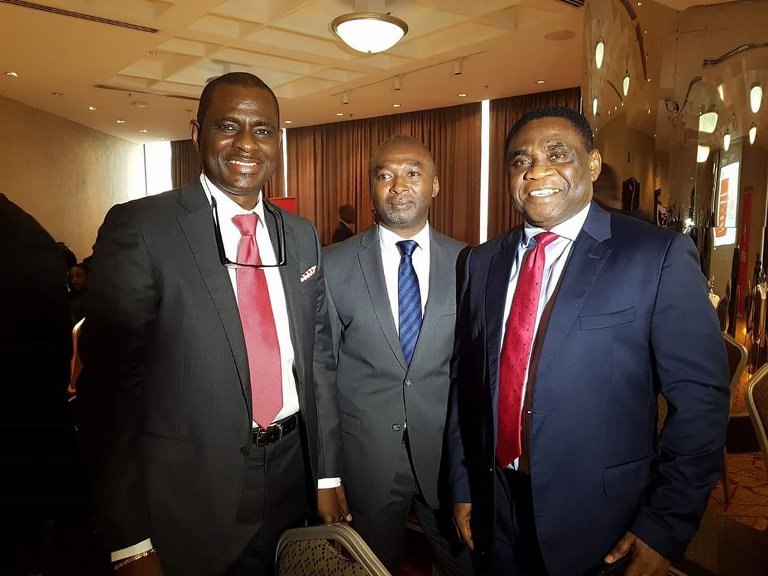By Martin Ekpeke
The Director of Public Affairs at the Nigerian Communications Commission (NCC), Mr. Tony Ojobo yesterday reiterated the Commission’s commitment at creating an environment that can accommodate telecommunications investors, stressing that ease of doing telecom business is paramount to the Commission.
The NCC spokesman stated this, while representing the Executive Vice-Chairman of the Commission, Prof. Umar Danbatta as a discussant at the Nigerian-British Chamber of Commerce breakfast meeting, held at the Interconnectal Hotel, Victoria Island-Lagos.
According to Ojobo, the Nigerian telecom regulator is consistently liasing with operators in the industry to create an enabling environment, especially building a robust infrastructure that would ultimately lead to the ease of doing business and allow telecommunication, which has been described as Nigeria’s Poster Boy to thrive.
While calling on the state Governors to remove some of the bottlenecks hindering the successful uptake of telecom services across Nigeria, Ojobo argues that telecom, which is presently contributing about 10 per cent to the nation’s economy is capable of contributing more once those bottlenecks are removed.
The bottlenecks, according to him include vandalism and pilfering of telecoms equipment, shutting down Base Transceivers Stations and multiple taxation by states and Local Governments Areas across the country, claiming it is threatening the operations of the telecom companies.
“Ease of doing business requires a robust telecom infrastructure. The Government should recognize this and work closely with the state Governors to take away some bottlenecks on Right of Way,” he added.
Meanwhile, the Managing Director of Airtel Nigeria, Mr. Segun Ogunsanya, who delivered the major paper with the theme: ‘The Role of Communications Industry in Economic Growth’has described the Nigerian Communications Commission as the most transparent agency in Nigeria.
This, he attributed to the ways and manners the regulator has handled spectrum auctioning and other processes in the industry since the liberalization in 2001. Describing telecom as the ‘Poster Boy’ of the Federal Government, Ogunsanya stated that since the liberalization, telecommunications has created 10,000 direct and 1.3 million indirect jobs.
While listing intense competition, power, low retail tariff, high leverage, multiple taxation, roll out cost and smart technology as some of the challenges telecom companies must surmount to enable key sectors, the Airtel boss challenged the regulator to do more in protecting telecom infrastructure.
He suggested that Nigeria should probably replicate the Chinese example, where cutting of fiber can send people to jail, noting this will make the citizens see telecom infrastructure as critical national assets.




